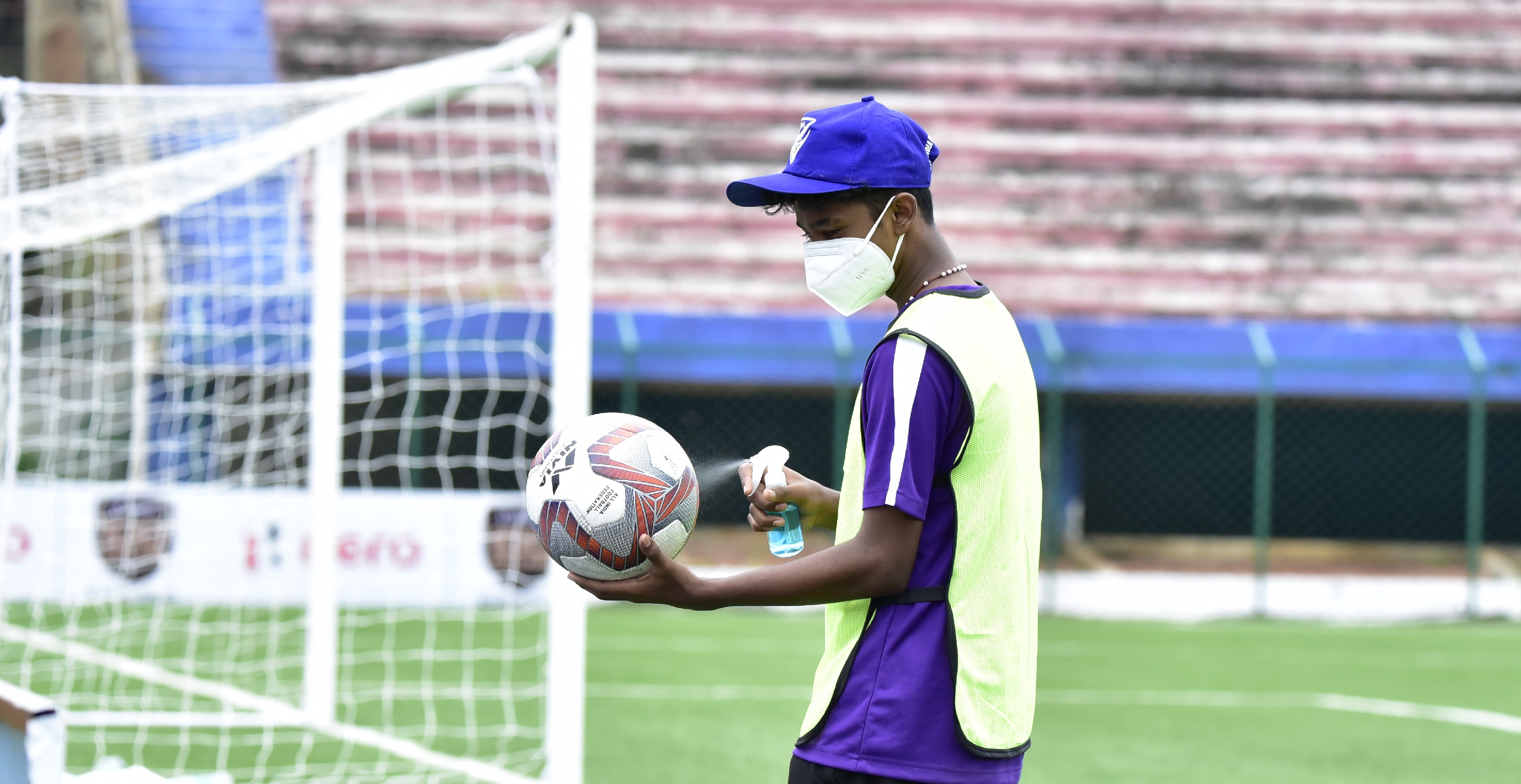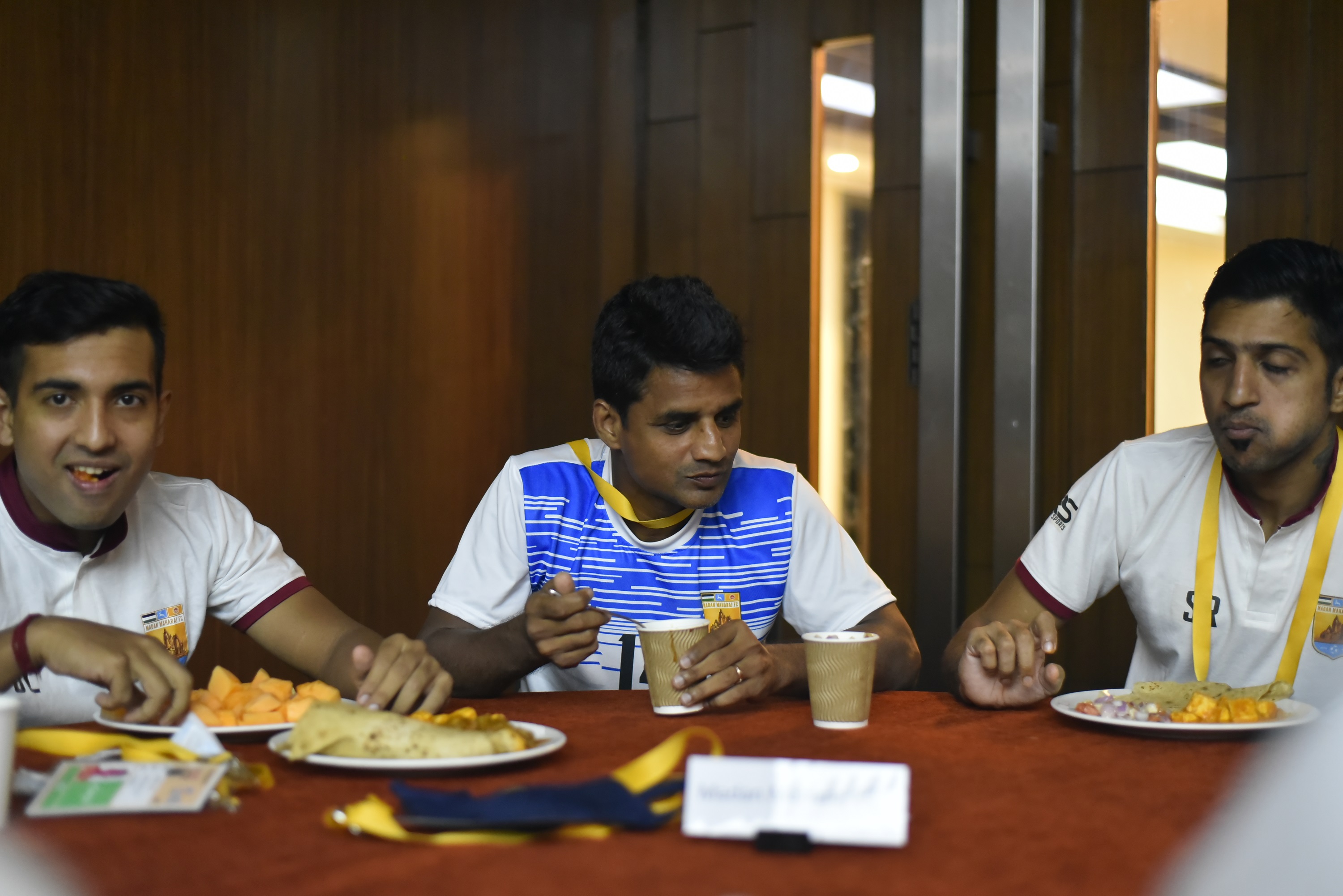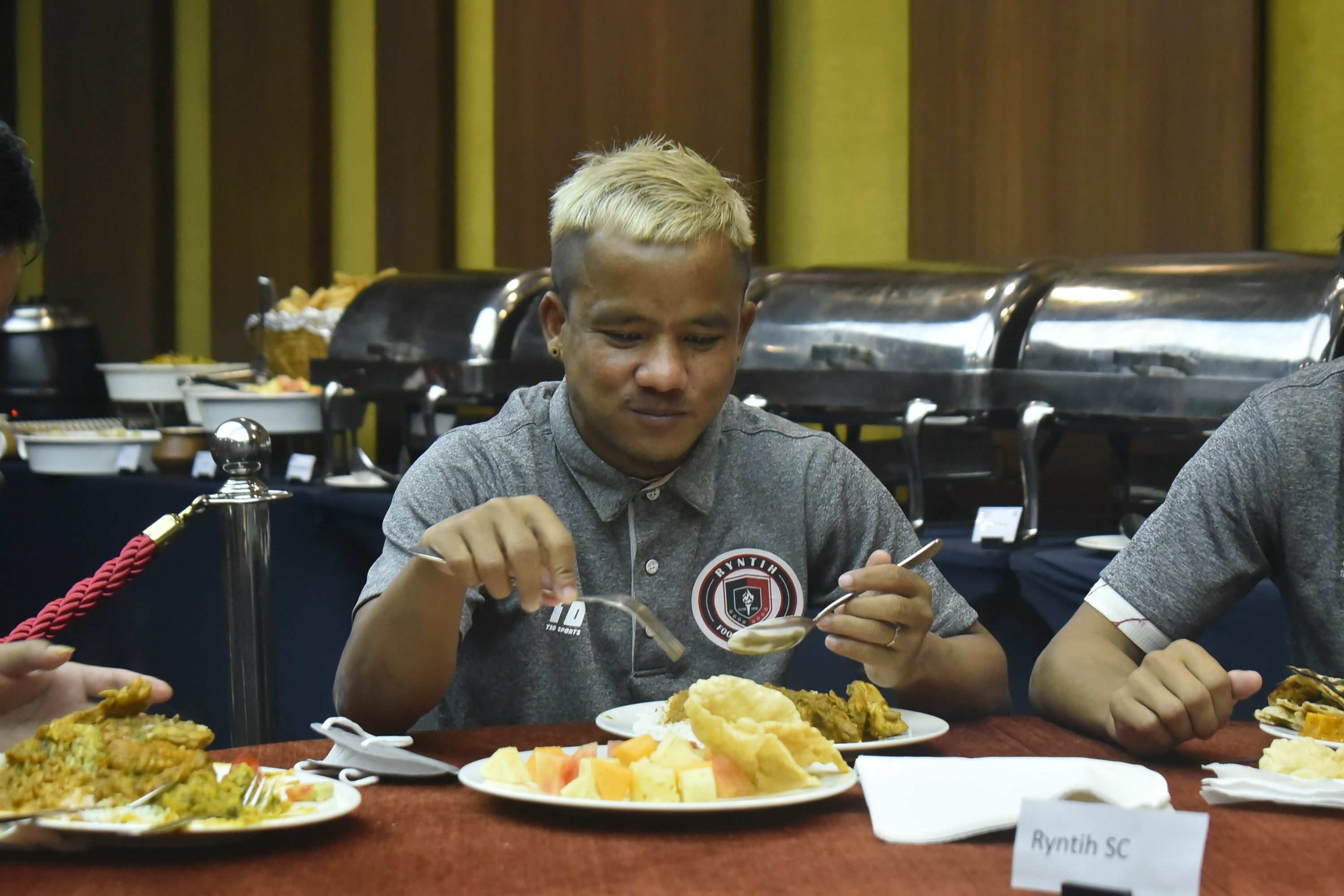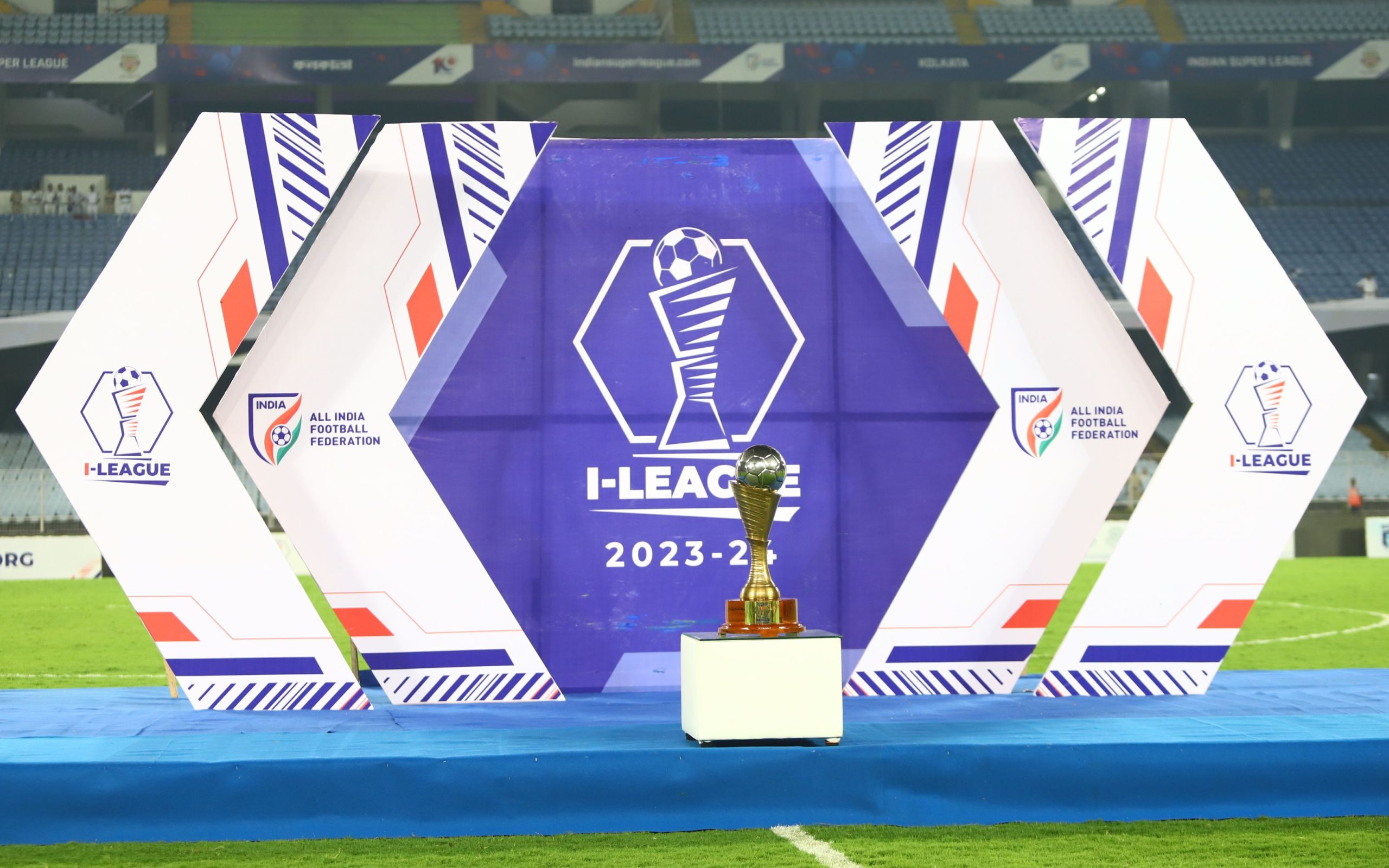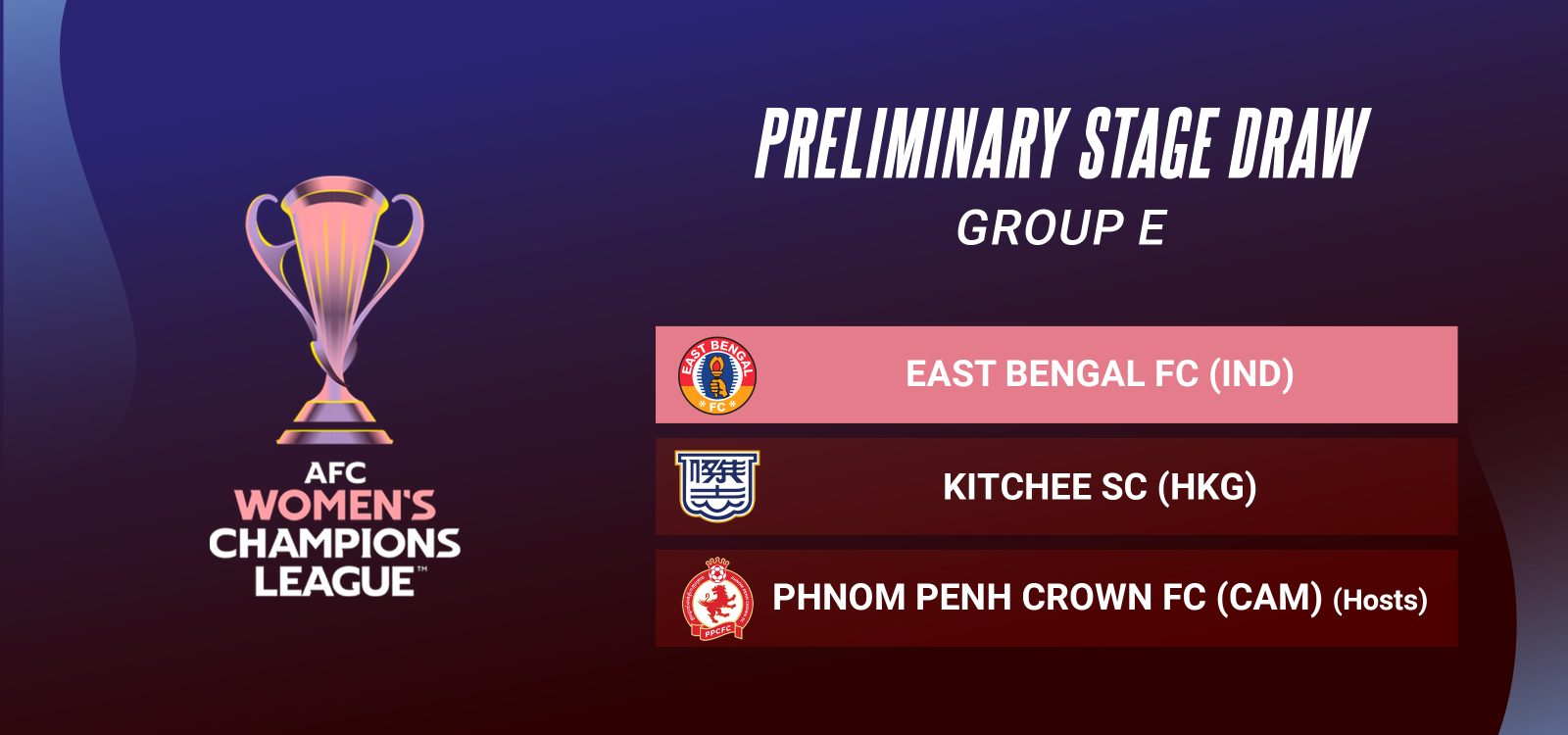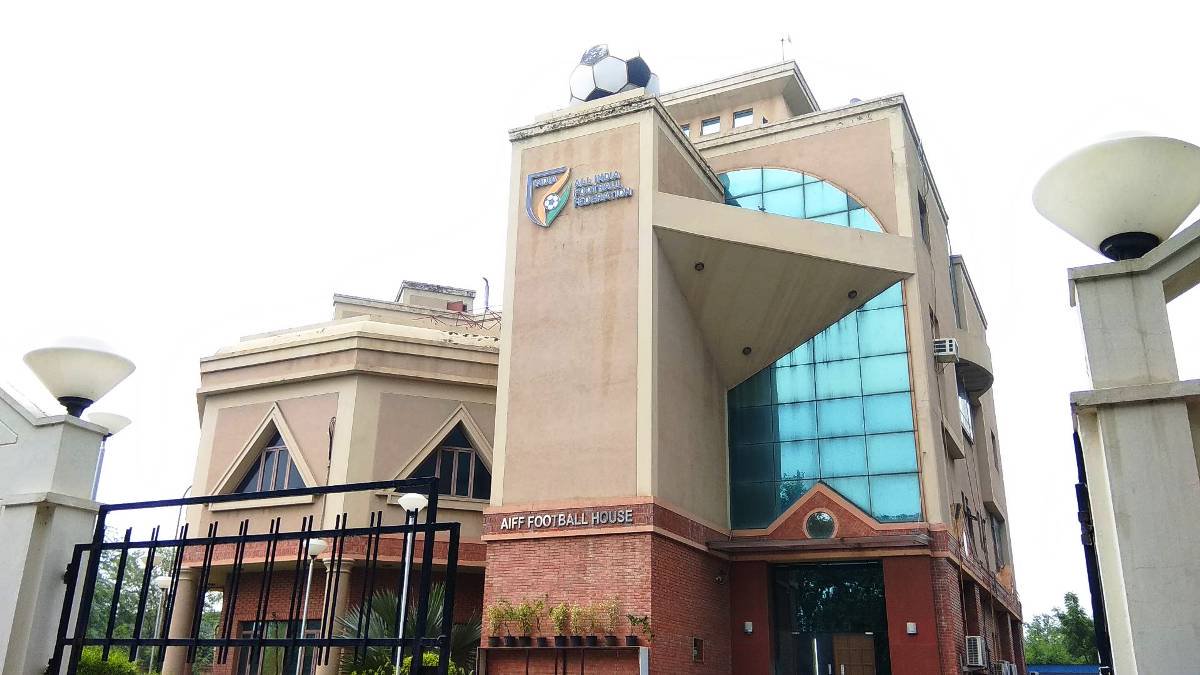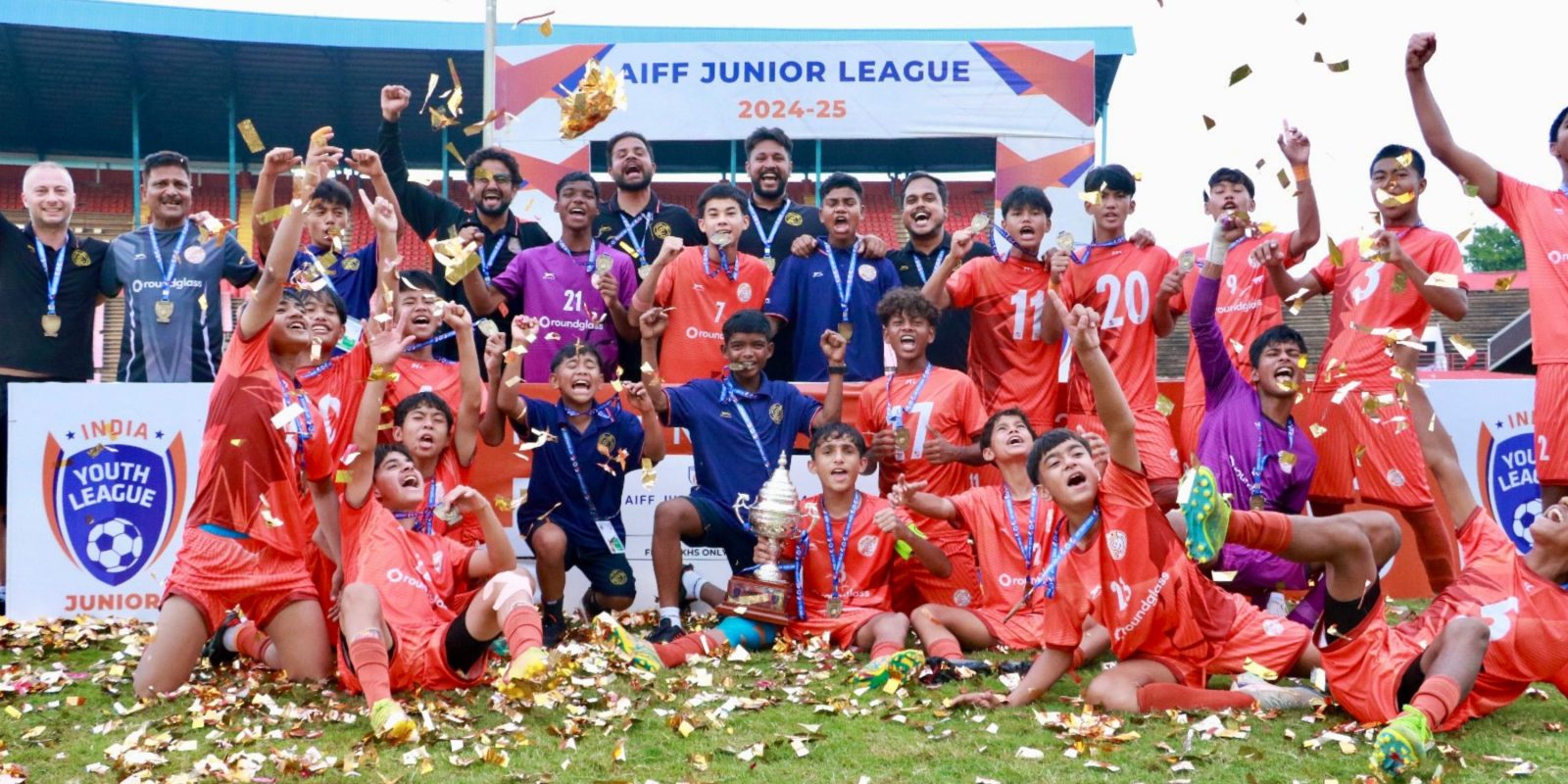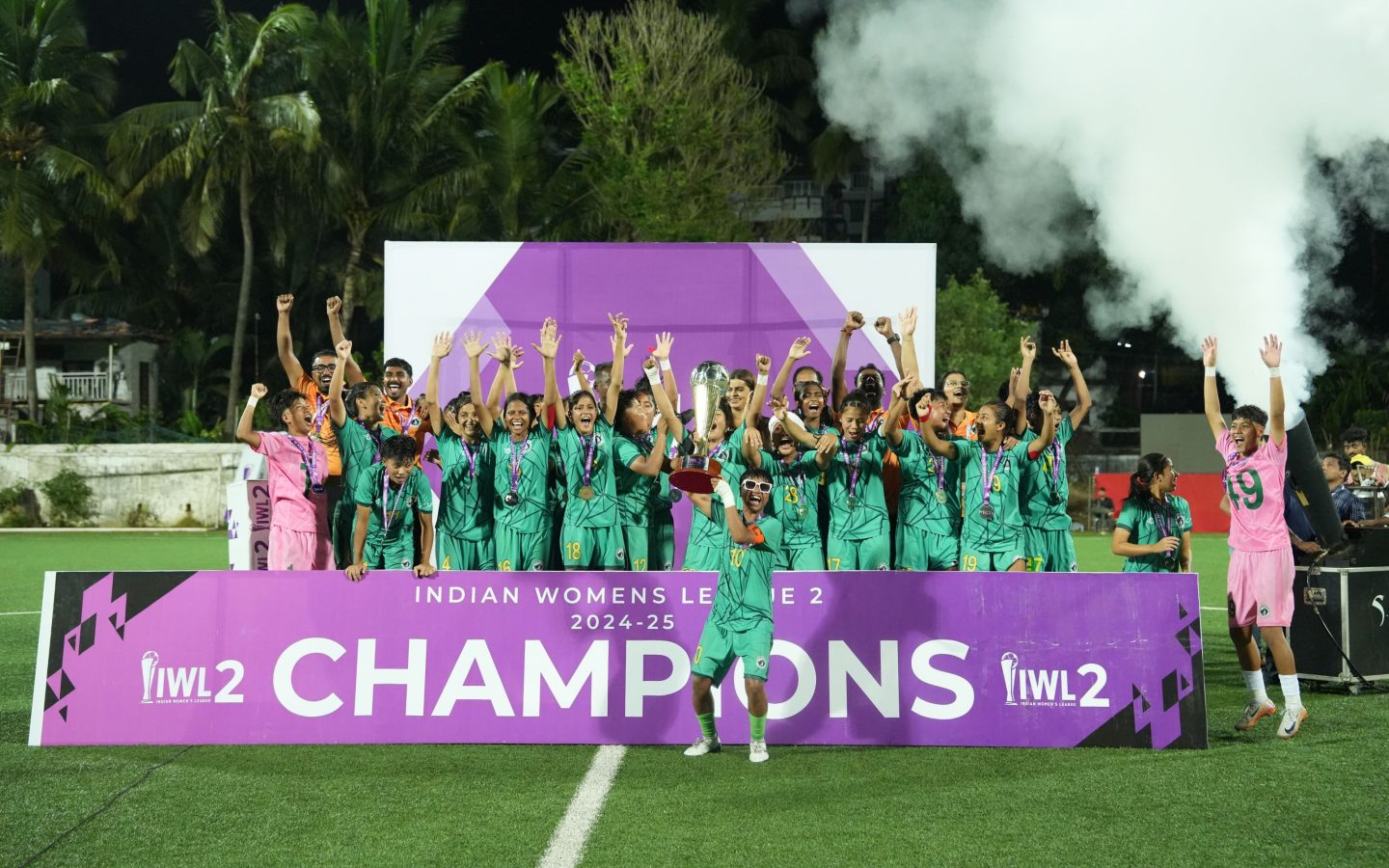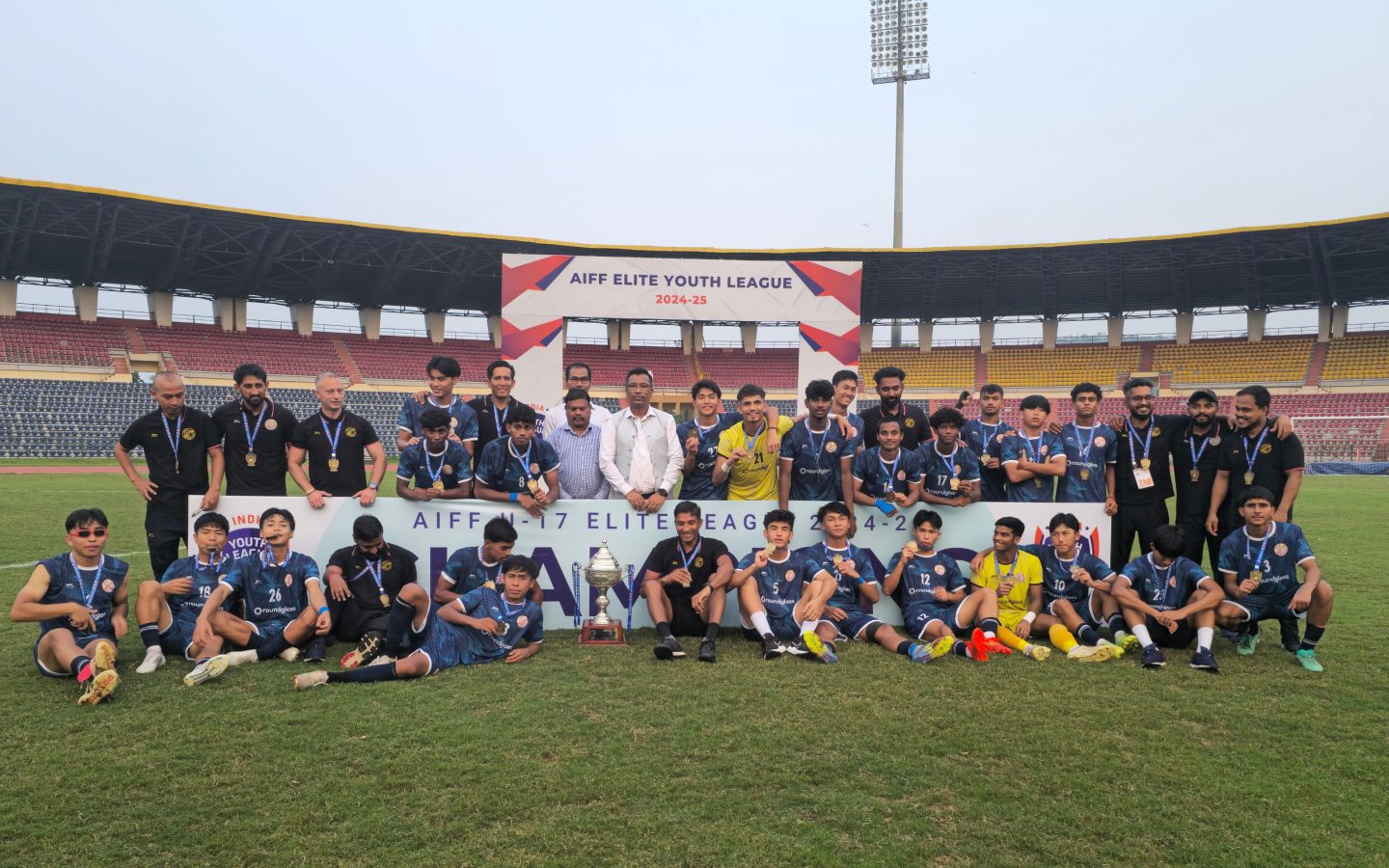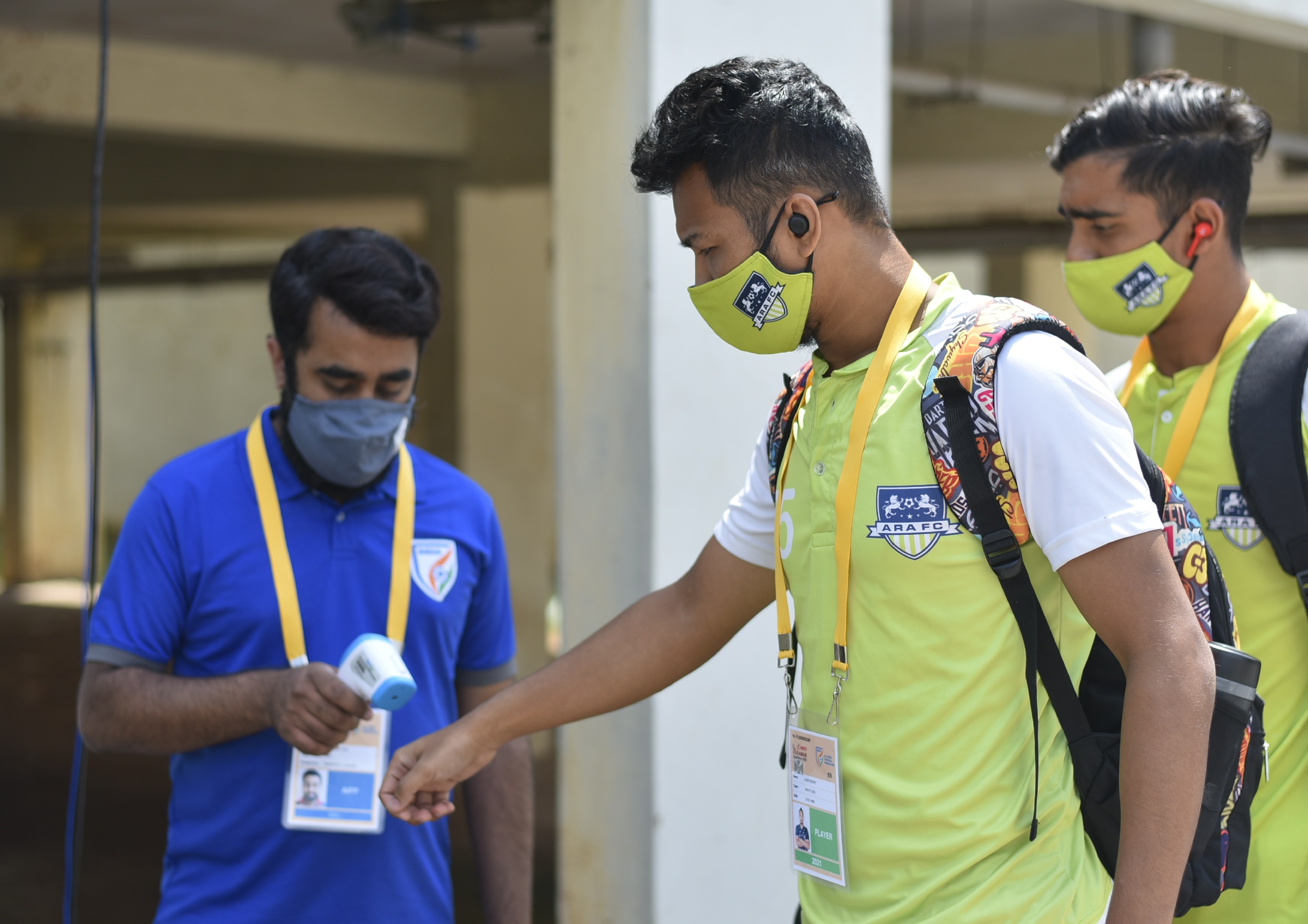
By Soumo Ghosh,
AIFF Media Team
BENGALURU: Last season, the Hero I-League Qualifiers paved the way for sporting events to be held in India during a pandemic by introducing an entirely new concept – the bio-bubble. While the COVID-19 pandemic persists in India and around the world, the HILQ 2021 edition is back with a bigger bio bubble.
The Hero I-League Qualifiers caravan has now moved from the City of Joy to the Garden City, the number of teams have almost doubled from five last season, to nine, and they are all being housed in two different hotels across the city, instead of one, with tests being conducted every five days for all members of every team, the inside-bubble and outside-bubble LOC staff, and also the hotel staff who are servicing the inside bubble floors.
However, after security measures around the bubble-demarcated areas remain as tight as they were last year. Movement between the floors are still restricted, and the teams can only move from their respective floor at their allotted schedule for meals, training, or for a team meeting. The stadiums, training facilities, and team buses are constantly being sanitised before the arrival of any teams. Every possible measures are taken to ensure the safety of the players and those around them.
“The bio-bubble is a new experience for me, but it is one that I have adjusted to pretty quickly,” said Madan Maharaj FC captain and mentor Mehtab Hossain. “I always used to stay in my room apart from training, even back in my younger days, so it’s not that much of a problem for me.”
“The five days of quarantine, though was something I have never experienced before. But, I believe that as a human being, one must always adapt to different situations. And the knowledge that you get out of any adverse situation is always a great teacher. Your fitness naturally drops after three days of quarantine, and the challenge remains to keep training inside the room, something that we did,” he said.
While everything is provided for inside the bubble, the situation of being locked inside does create some kind of psychological pressure for the players.
FC Bengaluru United’s Sanju Pradhan spoke about the pressure that a player faces while living inside a bio-bubble. “It is very difficult to play from inside the bio bubble. Staying inside a room for weeks and only going out to play, it increases pressure on players who are already under pressure to perform. It is difficult for any athlete.”
“But I think footballers are mentally strong, generally, which is why we are able to withstand the pressure,” he added.
While everyone is dealing with their own brand of pressure inside the bio-bubble, some have managed to find their glasses half full.
ARA FC’s Shiv Kumar believes that staying in a quarantine, or not being able to move around freely gives him less time to interact with his teammates.
“It’s not just about playing or training. We stay together as a team, and there’s a healthy amount of team bonding that goes on. I think mingling with the teammates is something that happens less in this situation,” he said. “But the one good thing that has come out of it is that we are all able to get a good sleep every day. Rest is very important for all of us footballers, and that has made a real difference to our recovery.”
Ryntih SC’s Chesterpoul Lyngdoh has taken it once step further, by using the extra time inside his room to look after his mental health.
“Yes, it’s difficult to stay at one place and lead a very regimented life. You can’t go out for a stroll or anything. But I have found that a bit of yoga and meditation always help calm the mind down. I have been practicing this from last season when I was playing for Real Kashmir, and this is something that has helped me remain focused,” said Chesterpoul.









